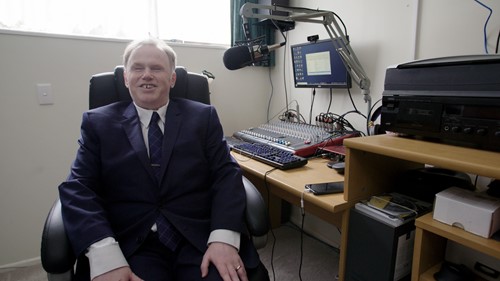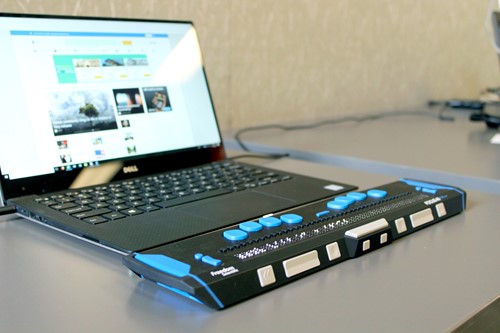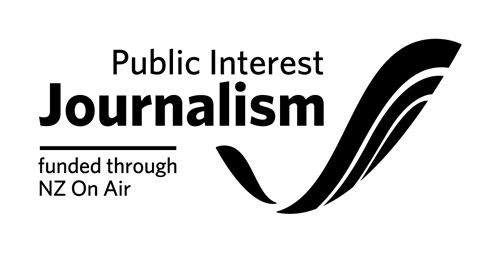Audio with captions available below text.
Close your eyes. In the darkness that surrounds you try to write a report or find your way to a team meeting. We’ve all imagined being blind but for over 30,000 Kiwis this is their day to day reality. When it comes to recruiting blind or low vision staff, employers use an eyes closed approach too, and it leads to reduced opportunities for those in the community. “It’s not blindness creating challenges for me, it’s other people's misperceptions,” says Mosen.
As CE of Workbridge, Mosen says a significant amount of his time is spent educating people that disabled employees are not the health & safety risk - or the productivity risk- they are perceived to be. “48 percent of disabled New Zealanders are not in education, employment or training. That is a shocking indictment on our society and it won’t change unless we first change those attitudinal barriers.”
So how does Mosen intend to drive change? He wants more disabled people fronting the mainstream media industry. “ When we are out of sight we are out of mind”. Stuff and the Spinoff have a handful of disabled journalists between them. Most media outlets have none. He also wants disability representation in Parliament. Not to say that no one has tried. Mojo Mathers was the first Deaf MP in 2011. Mosen ran in 1993 but was unsuccessful. Disability consultant and Paralympic skier Pete Williams ran for local office last year in 2021 but was also unsuccessful.
Mosen wants to see a political awakening. Parties taking people with disabilities seriously. We aren’t just making up the numbers. “There are many capable and successful disabled people who would be fantastic political candidates. The Government also needs to start procuring services in the disability sector from organisations led by disabled people.
Contracts for Maori & Pasifika services are primarily allocated to organisations led by their own people, so why is the disability sector any different?
If disabled people are in Parliament and in our media, then those underlying problems of invisibility get solved, because disabled people are the decision makers. They simply will not stand by and watch our people get left behind” says Mosen.
30 years ago Mosen was one of the first disabled people in the world to host mainstream breakfast radio. He’s since gone on to create an online radio station called Mushroom FM (so called because it’s the home of the Fun Guys) run completely by blind volunteers from all around the world. Several of the team have gone on to have successful careers in broadcasting.He was also one of the first New Zealanders to create a podcast in 2004. ‘Mosen at Large’ is very popular - talking about tech, disability politics, identity, alternative perspectives and other issues all through a blindness lens.
Assistive technology has changed the course of Mosen’s life. Conversely, he’s also influenced assistive technology, having been extensively involved for many years in its development/promotion.

 “The world has gone largely paperless and screen reading tech for laptops/phones has come so far it makes it possible to do the job that I do. I work with documents, respond to emails, make calls. I have a braille display on my desk which shows (in a line of braille) what’s on the computer screen and I’m able to take notes with that. This is very significant because it allows me to read information and to present.
“The world has gone largely paperless and screen reading tech for laptops/phones has come so far it makes it possible to do the job that I do. I work with documents, respond to emails, make calls. I have a braille display on my desk which shows (in a line of braille) what’s on the computer screen and I’m able to take notes with that. This is very significant because it allows me to read information and to present.
Braille, even though it’s a very old technology, is the single most important technological advancement that has ever been made in the history of blindness.”
The home of Louis Braille was on the itinerary for Mosen on a recent business trip to France. “The man who gave the blind community literacy. Without Louis Braille my life would have been so much worse.”
As CE of New Zealand’s largest disability employment agency, Mosen is currently involved in a transformative project. Converting Workbridge into a social enterprise. “Profit we make from additional businesses would go into a public good fund - that must be used to promote and advance the employment of disabled people. The most radical change that has been proposed for Workbridge in over 35 years .... Eventually disabled people (in concert with the management team) will determine whole new ventures that will benefit them.”
Employment prospects for people with disabilities in NZ are bleak. But Mosen says he’s feeling optimistic and can see a positive trajectory. We have the pandemic to thank for that. With employers increasingly being open to staff working remotely, people with disabilities now have a chance of employment on equitable terms.
Mosen believes that in many industries, “disabled people could be the answer to the labour market shortage.” Workbridge alone has thousands of capable job seekers on the books.
He’s also a staunch opponent of the Minimum Wage Act exemption. Speaking on behalf of Workbridge, Mosen urges its removal as soon as possible.
“Every human being is entitled to the dignity of a fair day's pay for a fair day's work. It’s abhorrent”.
He appears to be momentarily upset even being asked to revisit such a divisive and exploitative law.
 For those losing their sight, or those who have lost their sight in an accident, Mosen has words of encouragement. “Blindness is not a death sentence. If you’re fully sighted and suddenly find yourself fully blind, that is such a profound change in your circumstances. The first thing I would say is that it is ok to grieve. Certain jobs may now be out of reach but you can be gainfully employed, you can have a relationship, you can have a family and a social network. You can have a good life.
For those losing their sight, or those who have lost their sight in an accident, Mosen has words of encouragement. “Blindness is not a death sentence. If you’re fully sighted and suddenly find yourself fully blind, that is such a profound change in your circumstances. The first thing I would say is that it is ok to grieve. Certain jobs may now be out of reach but you can be gainfully employed, you can have a relationship, you can have a family and a social network. You can have a good life.
Reach out to blind people doing what you want to do.There are good things ahead of you once you choose to think about it in a positive way.”
Uber are serial offenders when it comes to rejecting guide dog users from their service and Mosen is unapologetic about calling them out.
Under NZ law, service or transportation cannot be denied to a person due to disability. The uncomfortable reality is different. Both Mosen and his wife (who’s also a guide dog user) have been denied entry and made to feel unwelcome.
“You can be going about your business and suddenly it happens when you least expect it. Once it’s happened you’re on the defensive - you walk into a hotel or a restaurant and try to get into an Uber with a sense of foreboding and you’re on edge. It’s a really unpleasant way to be”.
“America does it better,” says Mosen. He’s referring to the fact that life in the United States is better for a blind person than New Zealand. “Navigating an unfamiliar city in the US is far easier than here because there’s braille everywhere, the buses and trains are talking, and there’s a genuine inclusion of disabled people at that infrastructural level”.

Mosen is proud to be blind. He wouldn’t change his situation even if he could.
“I identify as having a culture that relates to my blindness. Blind people have made tremendous contributions to society and I identify with that. They are my iwi and I would not want to leave.”
With stem cell research indicating that blindness may soon be a condition resigned to history, Mosen is supportive of those who choose to go down this path but it’s not something he gives any thought to.
“I’m in my 50’s now. If I had all this visual stimulus suddenly overloading my eyes, I’m not sure I’d know what to do with it. I imagine I would need extensive rehabilitation. Just not worth it.”
“We need to celebrate disabled people. We add to the rich tapestry of diversity in our country.”




